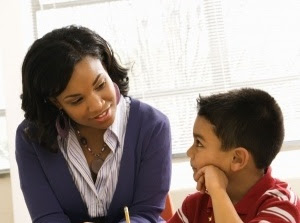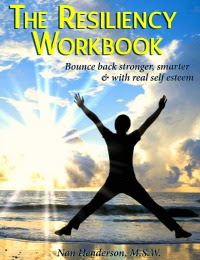Resiliency Research is Producing Quizes/Lists and Questionnaires to Help you be an Effective Resiliency-Builder Now
AS REPORTED LAST MONTH: “Resilience research is surging,” reports preeminent resiliency researcher Ann S. Masten in her recent comprehensive report: Resilience in Children: Developmental Perspectives. She notes this surge is growing right along with the increase in concerns about Adverse Childhood Experiences (ACEs). Masten (and her co-author Andrew J. Barnes) state:
“Resilience science suggests that human resilience is common, dynamic, [and] generated through myriad interactions of multiple systems.”
Coming out of this research are very useful research-based tools that can be used right now to build resiliency.
THE GOOD NEWS: Masten and Barnes conclude, “There are some remarkable consistencies in findings (about how to foster resiliency) from the voluminous literature on resilience.” These findings are the basis of the resiliency quizes and surveys described below.
It was developed by researchers with the hypothesis that these experiences mitigate the negative impact of Adverse Childhood Experiences. This list, called a “scale” by researchers, is just “peeking out” of current research.
Here is how the researchers describe this list:
“The Benevolent Childhood Experiences (BCEs) scale is a new instrument designed to assess positive early life experiences in adults with histories of childhood maltreatment and other adversities. A counterpart to the Adverse Childhood Experiences (ACEs) questionnaire, the BCEs scale was developed to be multiculturally sensitive and applicable regardless of socioeconomic position, urban-rural background, or immigration status. Higher levels of BCEs were hypothesized to predict lower levels of psychopathology and stress beyond the effects of ACES.”
Preliminary findings suggest that women (in the study linked above) who had a higher level of BCEs along with ACEs, did do better. (Read the discussion section of the study for specifics.)
This new list/scale will undoubtedly be the subject of continuing research across populations.
Here is the BCEs list:
When you were growing up, during the first 18 years of life…
- Did you have at least one caregiver with whom you felt safe?
- Did you have at least one good friend?
- Did you have beliefs that gave you comfort?
- Did you like school?
- Did you have at least one teacher who cared about you?
- Did you have good neighbors?
- Was there an adult (not a parent/caregiver or the person from #1) who could provide you with support or advice?
- Did you have opportunities to have a good time?
- Did you like yourself or feel comfortable with yourself?
- Did you have a predicatable home routine, like regular meals and a regular bedtime?

The idea with quizes and checklists is to do anything you can do to increase the score – and the BCEs list shows many opportunities for you to do that for your own children and for the children and youth you teach, counsel, advise, or mentor.
ACEs Too High “is a news site that reports on research about adverse childhood experiences, including developments in epidemiology, neurobiology, and the biomedical and epigenetic consequences of toxic stress. We also cover how people, organizations, agencies and communities are implementing practices based on the research. This includes developments in education, juvenile justice, criminal justice, public health, medicine, mental health, social services, and cities, counties and states.”
The site published a “Resilience Questionnaire” described as a list for “education only.” It is a resource to help parents build resiliency in their children, but I believe can be used by all caregivers. Again, the idea is to do whatever you can to increase the prevalence of items on the list in the lives of those you care about…and/or (as applicable) in yourself.
HERE IS THE LINK TO THE ACEs TOO HIGH ACEs AND RESILIENCE QUESTIONNAIRES.

“The Resiliency Quiz” is based on the six most powerful protective conditions identified (repeatedly) by resiliency research. (Diagrammed in the Resiliency Wheel on the right.)
It also includes a list of personal resiliency builders (called “protective factors” by researchers) that facilitate individual resiliency.
It was written to assist any person from 10 to 100 in building their resiliency. Professionals use it for all populations they are assisting. It has been used across the U.S. and in many other countries.
CLICK HERE TO ACCESS THE RESILIENCY QUIZ

Here is why The Resiliency Workbook: Bounce Back Stronger, Smarter and with Real Self-Esteem was the #1 best-selling book on Amazon.com under “resiliency” for four years: There is no other book like it.
This book puts the findings of decades of research on how to bounce back from high ACEs/life adversity into a user-friendly, self-help format. It has been used by hundreds of K-12 educators and counselors, social service providers, college professors and even prison workers.
The “Resiliency Wheel” – my summary of the most important resiliency-building factors – is the core of the book, with pages and activities focused on each aspect of the Wheel.
AND It is designed to be a hands-on resiliency-building process over many weeks. In fact, many use it as a RESILIENCY CURRICULUM.
Here are some of the many rave reviews about The Resiliency Workbook:
“Every school and every child will benefit from using the recommendations in The Resiliency Workbook, which – from my experience – promotes student success, mental health, and staff effectiveness.” -Dr. Gerald Zahorchak, State of PA Secretary of Education, 2006 – 2010
“The Resiliency Workbook is an excellent resource for self-reflection, development of counseling skills, and facilitating self-awareness. Everyone in the helping professions will benefit from the content of cited research and by the activities aimed at deepening practices. A wonderful contribution to an asset-based framework…” -Diane Stephens, Ph.D., Professor, Cal Lutheran University
“Nan Henderson’s ability to make resiliency understandable and useable is unparalleled. I have used her work and her books in my workshops and graduate-level courses since they were published. Her new book, The Resiliency Workbook, is a welcome addition. Everyone who works with kids should read Henderson’s books!” -Cathy Gangstad, M.P.A., expert in brain-research and brain-compatible learning, Learning Consortium, Inc.
“Nan makes resiliency research accessible to all in a way that will build their personal understanding of their innate greatness and their ability to triumph over life’s challenges. This is exactly the power of my Nurtured Heart Model, as well. I recommend Nan’s work to all.” -Howard Glasser, Executive Director, The Children’s Success Foundation, Best-selling author of Transforming the Difficult Child



Speak Your Mind